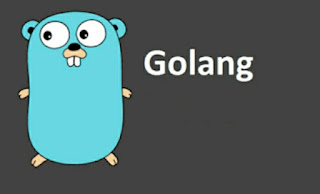list of top 10 Programming Languages for 2020
- Python
- JavaScript
- Java
- Swift
- GoLang
- C#
- C++
- Scala
- Kotlin
- Ruby
Python - Python is an interpreted, high-level, general-purpose programming language. Created by Guido van Rossum and first released in 1991, Python's design philosophy emphasizes code readability with its notable use of significant whitespace.
Python is an interpreted, object-oriented, high-level programming language with dynamic semantics. ... Python's simple, easy to learn syntax emphasizes readability and therefore reduces the cost of program maintenance. Python supports modules and packages, which encourages program modularity and code reuse.
Python is an interpreted, object-oriented, high-level programming language with dynamic semantics. ... Python's simple, easy to learn syntax emphasizes readability and therefore reduces the cost of program maintenance. Python supports modules and packages, which encourages program modularity and code reuse.
JavaScript - JavaScript, often abbreviated as JS, is a programming language that conforms to the ECMAScript specification. JavaScript is high-level, often just-in-time compiled, and multi-paradigm. It has curly-bracket syntax, dynamic typing, prototype-based object-orientation, and first-class functions
Java- Java is a general-purpose programming language that is class-based, object-oriented, and designed to have as few implementation dependencies as possible
Swift- Swift is a general-purpose, multi-paradigm, compiled programming language developed by Apple Inc. for iOS, iPadOS, macOS, watchOS, tvOS, and Linux. Swift is designed to work with Apple's Cocoa and Cocoa Touch frameworks and the large body of existing Objective-C code written for Apple products.
Golang-Go is a statically typed, compiled programming language designed at Google by Robert Griesemer, Rob Pike, and Ken Thompson. Go is syntactically similar to C, but with memory safety, garbage collection, structural typing, and CSP-style concurrency.
C#- C# is a general-purpose, multi-paradigm programming language encompassing strong typing, lexically scoped, imperative, declarative, functional, generic, object-oriented, and component-oriented programming disciplines
C++ - The C programming language was developed at ATT Bell Laboratories in the early 1980s by Bjame Stroustrup. He found 'C' tacking for simulations and decided to extend the language by adding features from his favourite language, Simula 67. Simula 67 was one of the earliest object-oriented languages. Bjarne Stroustrup called it "C with Classes" originally. The name C (pronounced C ptus plus) was coined by Rick Mascitti where "++" is the C increment operator. Ever since its birth, C evolved to cope with problems encountered by users, and through dis- cussions at ATT.
Scala- Scala is a general-purpose programming language providing support for both object-oriented programming and functional programming. The language has a strong static type system. Designed to be concise, many of Scala's design decisions are aimed to address criticisms of Java.
Kotlin-Kotlin is a cross-platform, statically typed, general-purpose programming language with type inference. Kotlin is designed to interoperate fully with Java, and the JVM version of its standard library depends on the Java Class Library, but type inference allows its syntax to be more concise
Ruby-Ruby is an interpreted, high-level, general-purpose programming language. It was designed and developed in the mid-1990s by Yukihiro "Matz" Matsumoto in Japan. Ruby is dynamically typed and uses garbage collection.












Post a Comment